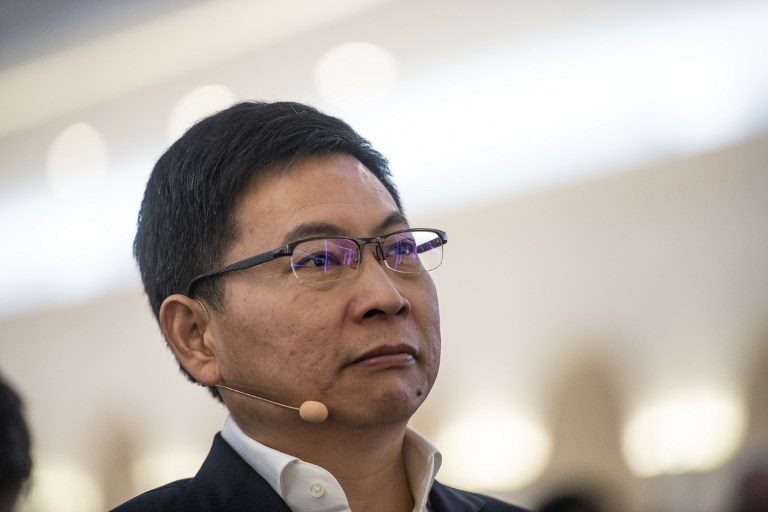SUMMARY
This is AI generated summarization, which may have errors. For context, always refer to the full article.

MANILA, Philippines – Huawei’s consumer business group CEO Richard Yu recently shed a light on what the company might do in case the US bans them from using Google Android and Microsoft Windows.
Huawei’s smartphones use Google Android while its laptops run on Windows.
“We have prepared our own operating system. Should it ever happen that we can no longer use these systems, we would be prepared. That’s our plan B. But of course, we prefer to work with the ecosystems of Google and Microsoft,” the executive told German newspaper Die Welt in an interview published, Sunday, March 10.
The question asked was, “Are you thinking about building your own operating system so that your smartphones are not Google-based and computers are not Microsoft-dependent?”
Yu also mentioned a 1000-euro foldable phone a year or two from now, a 100- or 200-inch device display using glasses. He also said he did not expect an Apple foldable this year.
Development of the operating system started in 2012, said an unnamed South China Morning Post source, in light of US investigations into Huawei and ZTE that year. In 2016, reports of a Huawei OS being in development surface again, this time as a precaution in case its relationship with Google goes bad.
This time, Huawei’s need for its own OS comes as their legal battle with the US continues. Huawei has sued the US for banning government networks from using Huawei equipment, while facing charges of technology theft and sanctions violations from the US.
Huawei is cautious of export bans. In April 2018, ZTE, also from China, was banned from receiving exports from US suppliers including Qualcomm chips and Google Android OS for its phones, effectively shutting it down until the ban’s lifting in July 2018. That Huawei may face a similar ban is not out of the realm of possibility.
Having its own OS to power its laptops and smartphones as substitutes for Windows and Android safeguards Huawei’s ability to keep operating. Huawei already makes its own smartphone processors as well. It doesn’t, however, have laptop processors, relying mostly on US-made Intel chips.
A Huawei spokesperson quoted by the South China Morning Post confirmed the interview quote, also echoing Yu’s sentiments regarding their continued preference for the US-made OSes. “Huawei does have backup systems but only for use in extenuating circumstances” but they “don’t expect to use them, and to be honest, we don’t want to use them.”
“Android and Windows will always remain our first choices,” the source added. – Rappler.com
Add a comment
How does this make you feel?





![[WATCH] Rappler Live Jam: totâ](https://www.rappler.com/tachyon/2024/07/live-jam-ls1.jpg?resize=257%2C257&crop=439px%2C0px%2C1080px%2C1080px)
![[WATCH] Rappler Live Jam: Cast of ‘Mula Sa Buwan’](https://www.rappler.com/tachyon/2024/07/live-jam-ls.jpg?resize=257%2C257&crop=390px%2C0px%2C1080px%2C1080px)
![[WATCH] Rappler Live Jam: dwta](https://www.rappler.com/tachyon/2024/07/live-jam-1280-baba.jpg?resize=257%2C257&crop=179px%2C0px%2C1080px%2C1080px)
![[WATCH] Rappler Live Jam: Munimuni](https://www.rappler.com/tachyon/2024/07/munimuni-live-jam-ls.jpg?resize=257%2C257&crop=414px%2C0px%2C1080px%2C1080px)
![[WATCH] Rappler Live Jam: Nicole Asensio](https://www.rappler.com/tachyon/2024/06/live-jam-1280.jpg?resize=257%2C257&crop=165px%2C0px%2C1080px%2C1080px)


There are no comments yet. Add your comment to start the conversation.